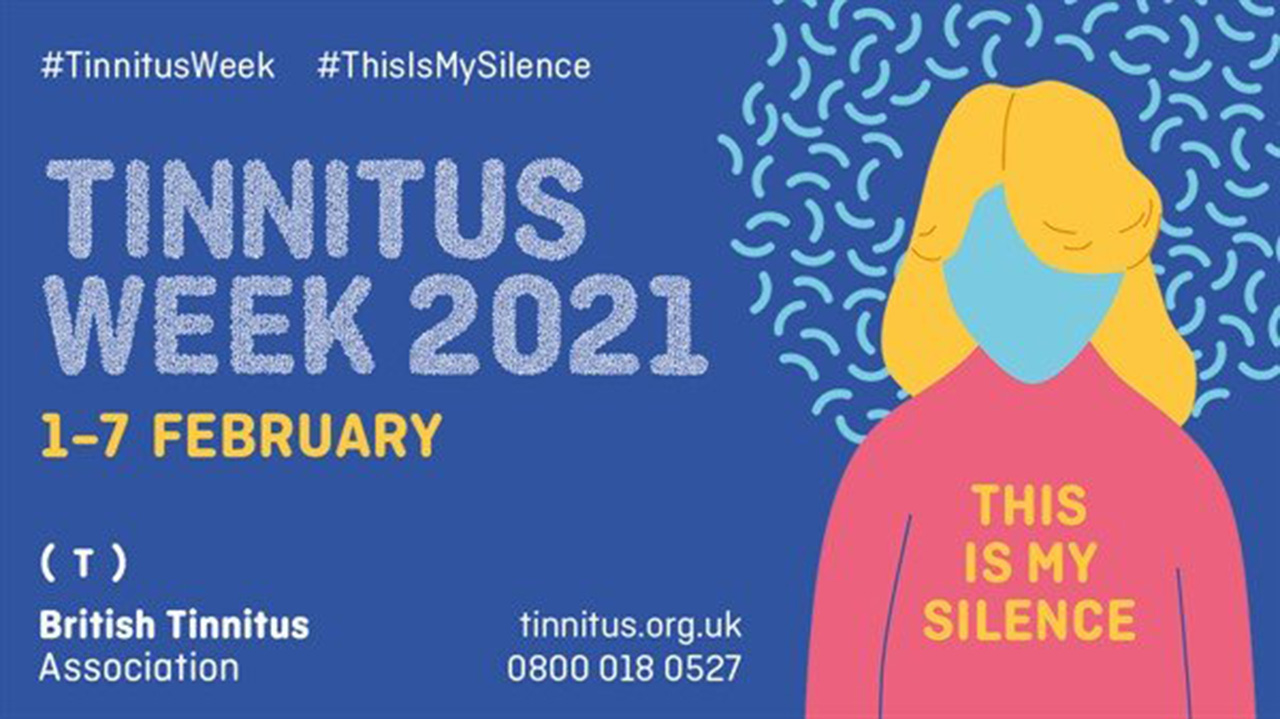Today marks the start of Tinnitus Week 2021 – an online campaign organised by the British Tinnitus Association to raise awareness of the condition and to ensure those with tinnitus have access to all the information they need.
Tinnitus affects all age groups and is described as the “sensation of hearing a sound in the absence of any external sound” and can manifest itself in the form of a ringing, buzzing, hissing or whistling – but it can vary from person to person. Anyone can get tinnitus, with the charity reporting that 30% of people will experience the condition at some point in their lives.
As music fans it’s important that we know how to protect our hearing, so we chat to Emily Broomhead, the Campaigns Manager at the British Tinnitus Association to find out more.

Emily Broomhead has worked at the British Tinnitus Association for more than 18 years and has been instrumental in the charity's annual Tinnitus Awareness Week. Emily is also involved in the Plug’em initiative which encourages people to wear earplugs at concerts and festivals.
Louder: Although the live music scene is on pause due to COVID-19, it won’t be long before people begin flooding back to concert venues and festival sites. What steps can music fans take to protect their hearing when shows return?
Emily Broomhead: The most important thing is to make sure that you wear hearing protection when attending live music events. The best way to do this is by using filtered earplugs which reduce the decibel (dB) level of sound but still allow you to hear the music clearly. There are lots of types available to purchase online, but they really are essential for protecting from hearing loss and tinnitus.
Think carefully about where you stand or sit in a venue. You might think that standing right next to the speakers adds to the thrill and gives the best experience, but this is where the dB level is at its loudest and you’re most likely to sustain damage – quickly turning it into the worst experience!
Also, take regular breaks from the sound to give your ears a rest, and be sure to keep topping up on the water to stay hydrated.
How loud is too loud, and how long should people be exposed to loud music for?
85dB and above is the level of sound at which noise becomes unsafe over time without the use of hearing protection like earplugs. This is equivalent to the sound of busy traffic when you are in a car, or a kitchen blender whirring away – at 85dB you would be safe without hearing protection for a maximum of eight hours. Each time the sound increases by 3dB, the time you are safe without hearing protection decreases by half. So at 88dB you would be safe without hearing protection for four hours, at 91dB for two hours, at 94dB one hour and so on.
Remember, this is just a guide and, as live music events tend to be over 94dB and last longer than an hour, use your hearing protection! You can find out more details on the British Tinnitus Association's website.
Music venues and local councils are involved in deciding suitable decibel levels, usually with local residents in mind. Do you think more could be done in this area?
Yes, definitely. Even a reduction of 3dB can make a huge difference. We’d love to see more venues taking responsibility for their customers safety by actively promoting safe listening and providing free earplugs. And, this isn’t just limited to music venues – cinemas, pubs, and even restaurants, for example, are often environments that reach unsafe sound levels.
Many musicians have spoken about tinnitus, but do you think it would be helpful if more of them spoke directly to their fans about the risks involved in prolonged exposure to loud music?
Absolutely, and it's one of the only ways we'll get fans to listen and learn about tinnitus. If you are told by your peers about the dangers of listening to music too loudly, we think you will be more likely to listen and use hearing protection. There is always the argument about turning the levels of sound down, but sadly that generally doesn't happen, so the more musicians that speak out about the risks, the better.
Finally, do you have any general advice for those either suffering from tinnitus or for fans who attend concerts on a regular basis?
Keep taking and using earplugs. Take a spare pair of earplugs too, in case you lose one or both. And importantly, if you feel uncomfortable you can always walk away. No live event is more important than your hearing. Never be afraid to leave. We get so many people telling us, "If only I had walked away." Don't let that be you.
Tinnitus Week 2021 runs from February 1-7 and you can get involved on social media by following and using the hashtags #TinnitusWeek and #ThisIsMySilence.
- Our guide to the best earplugs for concerts
- Help Musicians offer support to artists over "rising issue" of hearing loss
- How to keep your earplugs clean so you can use them time after time

